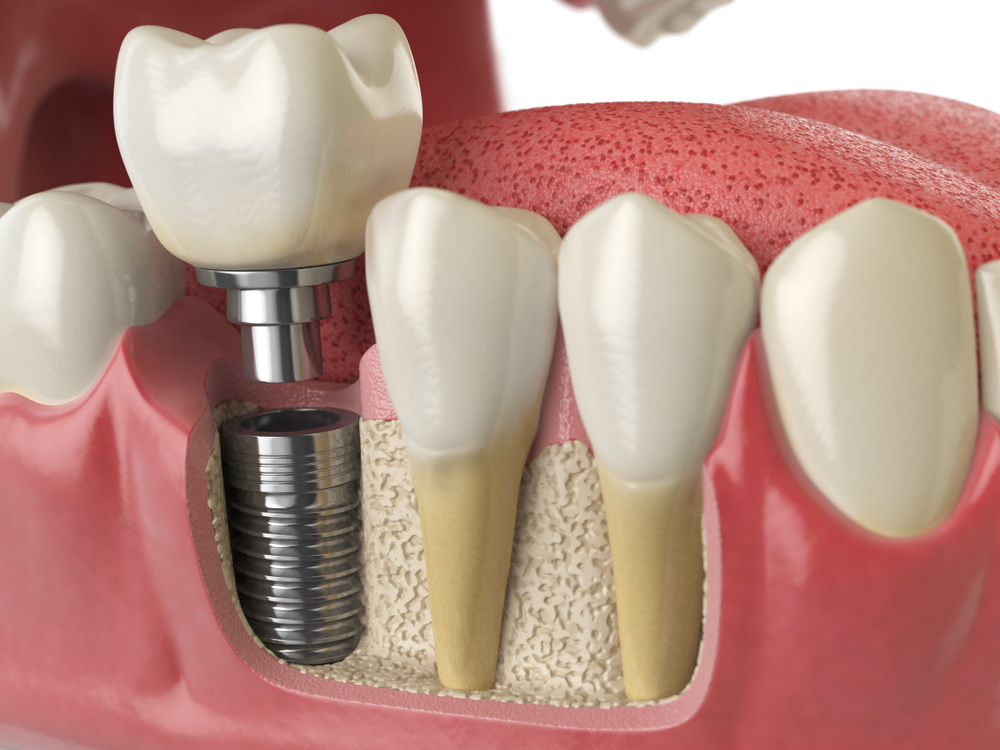Most people probably take their jaw bone health for granted, but it plays a vital role in helping to maintain your facial appearance, providing essential support for your teeth and your facial muscles. When you have strong and healthy teeth, it helps ensure your jawbone remains healthy, but it is a different story when you lose teeth in Oshawa.
What Happens to Your Jaw Bone When You Lose Teeth?
Far from being inert, your jaw is made from living bone, and it relies on the stimulation provided by your tooth roots when you chew and eat food. When you lose a tooth in Whitby, the entire tooth, including its root, is removed. Consequently, your jaw no longer receives the necessary stimulation, so when old bone cells die, they are no longer replaced.
Eventually, your jaw loses bone volume, and the bone becomes less dense and weaker, thinner and more brittle. The loss of volume can change your facial features because there is no longer such good support for your facial muscles. Your teeth also support your facial features, so their loss can be prematurely ageing, and when multiple teeth are missing, facial features can begin to collapse inwards.
Even if you are unconcerned about appearance, the effects extend beyond this, as the loss of bone and teeth means the height between your upper and lower jaw is diminished, creating an imbalance and affecting your jaw joints called temporomandibular joints. When your jaw joints cannot function properly, it can cause TMJ in Ajax, a potentially painful condition where the jaw joints become inflamed, and you might find it difficult to move your jaws comfortably.
These are all reasons why, if you lose teeth, your dentist will suggest replacing them as soon as possible, often with dental implants in Newcastle. But you do need a healthy jaw bone for successful implant treatment.
Why You Need a Healthy Jaw for Successful Implant Treatment
Dental implants in Pickering are a wonderful way to replace missing teeth, and an implant consists of a small screw that is surgically inserted into the jaw. It is the only form of tooth replacement that artificially restores a tooth root, protecting your jaw against further bone loss.
However, successful implant treatment relies on the implant screw being surrounded by healthy, strong bone. A healthy jaw is necessary so the implant can become fused into the bone, providing strong support for the replacement implant tooth in Clarington. Without this, there is a possibility that the implant will not integrate or fuse with the bone properly and could ultimately fail. A lack of healthy bone is a common problem because it can be destroyed by gum disease or dental trauma, or wearing dentures can accelerate bone loss.
What Happens When Someone Doesn’t Have Enough Healthy Bone?
Luckily, if someone doesn’t have enough healthy bone, there is a good solution, and that is to have a bone grafting treatment. When you visit our dentist at Durham Dental Solutions, we will need to assess your jaw bone health using a cone beam CT scan bone, which will quickly show how much bone is available and the quality. If you don’t have enough bone, a bone graft will restore it, creating enough high-quality bone volume for successful implant treatment.
Bone grafting is a routine treatment in Courtice and can sometimes be completed simultaneously while removing a failing tooth or placing a dental implant. Other times, it might be performed as a standalone procedure using the most sophisticated bone grafting materials and techniques available today.


